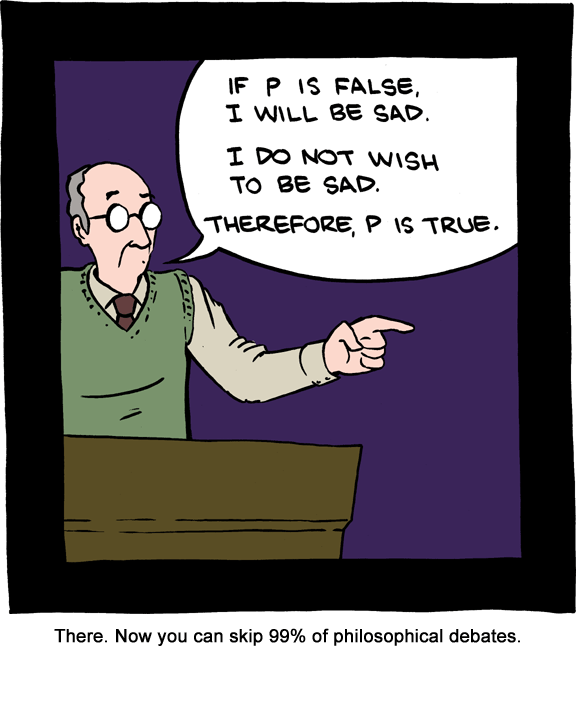This article was originally published a while back at
The Daily Banter, a left-leaning political blog worth checking out. They have some reasonable people over there, and are good writers to boot.
In the following piece, I highlight a case example of a type of entirely-useless assertion that is made far too often in the wake of tragedy. The broad assertion: A person's beliefs cause them to behave in certain ways. The specific example here is someone who murdered nine innocent black Americans in a South Carolina church in June 2015. Many asserted in the aftermath that the killer's racism motivated him to murder - I think this explanation is insufficient and incorrect.
Why Dylann Roof's Racism Did Not Cause the Massacre in Charleston
Last weekend, neuroscientist and popular author Sam Harris
tweeted, “Is there anyone who doubts that the odious Dylann Storm Roof was
motivated by his (racist) beliefs?” To which I reply: Yes, I doubt this very
much. I do not believe that Roof murdered those people because he is racist. In
fact, I consider it actively harmful to posit this as an explanation for the
tragedy that took the lives of nine innocent black Americans.
Before I get drowned in a flood of hate mail, let me clarify
things a bit. First, I think it is very clear that Roof is a virulent racist. A
huge amount of evidence indicates that he holds truly repugnant views on race,
especially with respect to black people. His crime was an act of domestic
terrorism, and unless something truly unexpected emerges during the legal
process, he should be thrown in prison for the rest of his life. However, his
racism did not cause him to murder those people. Like his crime, his racism is
not a cause, but an effect. At this
time, we should be asking about the nature of the shared cause for both, and
considering how this analysis may help prevent similar tragedies from occurring
in the future.
Human behavior can seem extraordinarily complex. However, in
a scientific analysis, we can simplify the relevant general processes that
govern behavior to less than a handful of items. For our purposes here, let us
consider “Behavior and Belief” as the middle link in a three-link chain. The
first link is “Environment and Culture,” and the last is “Consequences.”
 |
| Now I know my A, B, C's... |
Just like with a physical chain, when you move a single
link, you also tend to move the others. Reward (or reinforcement) and
punishment are examples of consequences that change behavior. Rewards are
offered for good behavior as a way to increase the likelihood of similar good
behavior happening in the future; punishments are threatened to reduce the chances
of unwanted behavior occurring. On the other hand, environments serve to provide
a context for the kinds of behavior
that will be reinforced or punished. If you have cheered at the top of your
lungs while attending a raucous sporting event, but would never dream of doing
so at a somber funeral, you recognize the importance of environments in
controlling your behavior. When we talk about a culture, we are merely describing a social environment that serves
to set the stage for the reinforcement of particular sorts of human behavior.
For example, someone invoking “gun culture” in America is really talking about
the vast web of human interaction that provides cover and, ultimately,
reinforcement for those who would buy, sell, collect, discuss, and shoot guns.
That our behavior is a necessary product of both its
consequences and its antecedent environmental conditions is critically
important to remember when we want to improve our lot in this world, because it
is only by manipulating these links
that we can change human behavior.
The consequences for Dylann Roof’s actions could not be more
dire for him. By murdering those people, he has probably ensured that he will
spend his remaining years in prison, and may even face execution. It is
difficult to imagine harsher consequences for one’s actions, and yet the
behavior still happened. Roof is not
insane – there can be little doubt that he knew that he would probably be
caught, and knew that his life was effectively coming to an end with his
actions. In fact, that many terrorists (e.g., suicide bombers, mass shooters)
kill themselves in their attacks could be seen as an acknowledgment that their
lives are effectively over, that only terrible things await them. We probably
cannot and definitely should not design punishments that are harsher than
death. So, to reduce violent crime and terrorism, what are we to do?
Our only option is to change the environments that give rise
to violent crime. Cultures that encourage profligate use of firearms, distrust of
education, and hatred of minorities will be much more likely to have a Dylann
Roof emerge from them than cultures where any of those pillars is missing. If
you remove the antecedent conditions that would give rise to objectionable
behavior, you prevent that behavior from ever occurring. Roof’s beliefs did not
and do not matter in a causal analysis. At most, his racism is an indicator, a
symptom of a sick world from which he emerged. Arguing about beliefs is
unproductive. Instead, we should talk about the conditions that caused Roof to
behave as he did and believe as he
does.
It is perverse that so many people would deny or obfuscate
the role of culture in causing tragic events like the Charleston massacre. When
we see Fox News talking heads blatantly ignore the topic of race relations in
America as a determining factor in this tragedy, we are watching people essentially
trying to prevent cultural change with respect to race. When pundits claim that
crimes like Charleston are acts of the mentally ill, or are “isolated” or
“senseless” incidents, they work to prevent clarity on the causes for the
crimes. Guns rights advocates often go a step further, suggesting that culture is important, but arguing that an expansion of their culture is needed. Simplistic aphorisms like, “an armed
society is a polite society,” and “guns don’t kill people, people do” are intonations
of a culture that is working to preserve itself. That platitudes like these are
demonstrably untrue is of little consequence to the group’s members, as what
really matters is that the words are effective at perpetuating a cultural
message beneficial to their aims.
 |
| Behold: A necessary product of a particular kind of environment. |
If we can blame a man for a crime, if we can fully blame a
person’s mental state or mental illness, it absolves a culture from responsibility.
It is easy to see why we tend to blame the individual. If a crime is the sole
responsibility of a person, we have many ways to deal with the issue – an
individual may be fined, shamed, institutionalized, imprisoned, or executed,
any of which is usually easy enough to implement. After punishing the criminal,
we can heartily congratulate ourselves on effectively addressing the problem.
However, if a person’s criminal actions are the necessary product of a larger
causal force, the problem we are looking to fix becomes much, much more
challenging. Punishing the criminal may help prevent some unlawful actions in the
future (see chain link #3), but a maximally effective technique must also address the issue of the complex
environment that gave rise to the behavior in the first place. Humans tend to
prefer simple answers to complex ones. Some of us have a stronger preference
than others.
Saints and monsters do not emerge from nothingness, but
instead are built by their environments. By building a better world, we can
banish monsters like Dylann Roof from the human experience. To do so, we must
not be distracted by those who would muddy the waters. We must not be confused
by fervent appeals to a kind of freedom that none of us has. We must not talk
of beliefs in causing behavior, but instead talk about how beliefs are built.
By understanding and accepting our necessary, intermediate role between culture
and consequences, we understand how we might change human behavior for the
better.
______
P.S. I got some feedback regarding this post when it was first published suggesting that I had, perhaps, a too-narrow view on what constitutes causality in a behavioral analysis. I have thought about it, and I don't think that the criticism is valid. At a later date, I will attempt to explain why Aristotle was wrong about causality and again explain why teleology (i.e., final causes) have no place in a proper understanding of the universe.





















.jpg)


